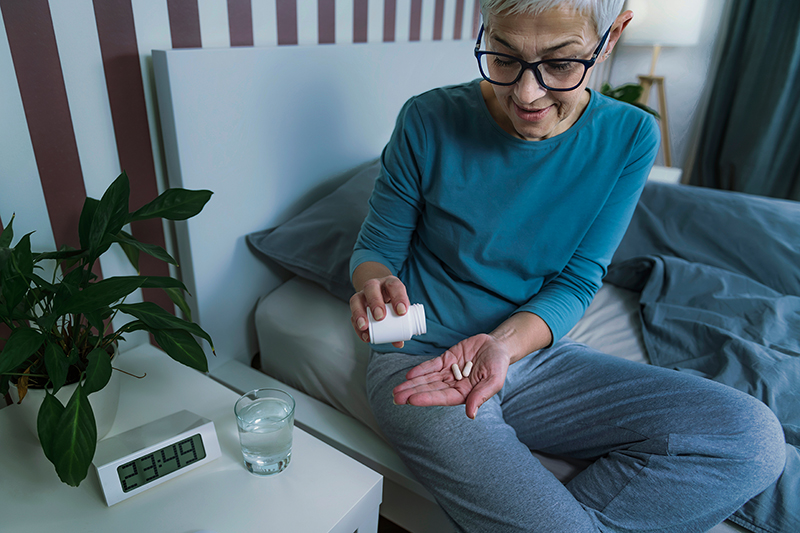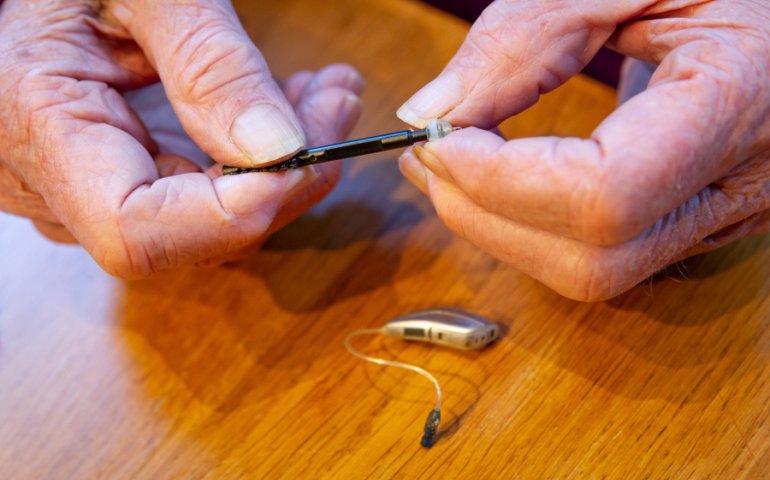Can Sleeping Pills Cause Tinnitus?
The Mayo Clinic states that tinnitus affects some 15 to 20 percent of the American population. That's as many as one in every five people, which is a staggering figure. If you have tinnitus, you're not alone. Millions of people struggle with this condition, and many lose valuable sleep because of it. However, help is available. Sleeping pills often contain antihistamines or benzodiazepines. Antihistamines may cause drowsiness as a desirable side effect when used for sleep. Benzodiazepines are tranquilizer drugs with significant side effects, including memory loss and addiction. Benzodiazepines interact with receptors in the brain to reliably induce a relaxed state and sleep, but sleeping under the influence of these drugs isn't like natural sleep.
What is Tinnitus?
Tinnitus is a condition that causes a sensation of ringing in the ear. It's not severe, but it's incredibly annoying and can cause many problems with concentration and sleep. People with this condition have a tough time sleeping, and many try sleeping pills for this reason.
Do Sleeping Pills Cause Tinnitus?
While some medications are linked to tinnitus, there is no evidence that sleeping pills cause this condition. The Mayo Clinic does not include sleeping medications on their list of tinnitus-causing drugs. However, sleeping pills do nothing to treat the problem itself and carry side effects like dry mouth, dizziness, headache, diarrhea, and persistent drowsiness the next day.
Can Medications Cause Tinnitus?
Certain medications are linked to hearing loss through ototoxicity. This is a term meaning that something toxic has damaged the ear's sensitive cells and structures. Drugs known to induce tinnitus and cause ototoxicity include:
- Certain antibiotics, such as gentamicin
- Quinine and chloroquine
- Cisplatin, a chemotherapy drug
- Aspirin and antidepressants
- Diuretics and non-steroidal anti-inflammatory drugs
More commonly prescribed antibiotics, such as penicillin and amoxicillin, are not associated with ototoxicity. High blood levels of aspirin can cause tinnitus, so it's important to keep the use of this substance well within recommended doses and only when necessary.
Hearing Loss Linked to Tinnitus
Some hearing care specialists believe that tinnitus itself is caused by hearing loss. Dr. Daniel Polley of Massachusetts Eye and Ear believes that as the auditory nerve begins to degrade due to age, it produces reduced hearing ability. The brain tries to compensate by increasing the nerve's sensitivity, which inadvertently causes the irritating ringing sounds of tinnitus.
Beltone's Tinnitus Calmer App
The most effective treatments for tinnitus don't involve medication at all and use a technique called sound therapy like that used in the Tinnitus Calmer App by Beltone. This distracts the brain from the ringing sound. Your favorite sounds that work best for you can be customized and balanced for each ear. You can also track your progress and response on the app as you learn which sounds and techniques work best for you. The app also includes a Coping Skills section.
Call Us Today
If you need expert hearing care, contact any of our Beltone offices in Tennessee for a free hearing exam. Be sure to ask our specialists about our Beltone hearing aid options to help ease tinnitus.






